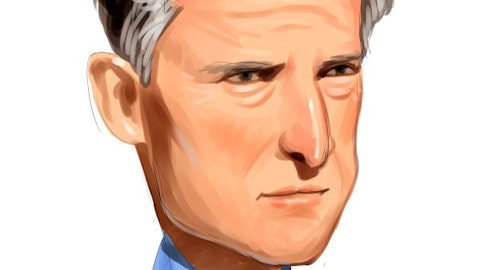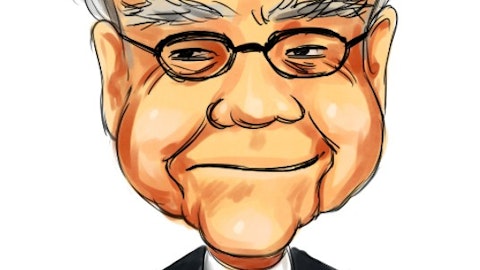
One of the hedge funds run by John Paulson, whose prescient bets against housing where chronicled in the book “The Greatest Trade Ever,” is on track to be the second worst performer of 2012 among the universe of funds tracked by HSBC. Last year, it was the worst. Paulson’s Advantage Plus fund, which uses additional leverage than his other funds, is down 19 percent through the end of October, following a 53 percent loss last year. The fund bests just the Conquest Macro Fund, which is down 27 percent through the end of November.
Views diverge between hedge fund investors and managers: survey (BusinessTimes)
Hedge fund managers and investors are not seeing eye to eye on a number of issues, if the results of a hedge fund market survey released by Ernst & Young on Tuesday are anything to go by. For one thing, the perceived benefit of hedge fund regulation is deteriorating among investors. Of the 50 institutional investors polled, only 10 per cent felt that regulations effectively protect their interests, while 85 per cent did not believe these requirements will help prevent the next financial crisis. Investors and managers are also drifting further apart in their views on aligning compensation with risk and performance.
Nobel Prize to Get Hedge Fund Boost After Awards Sink 20% (BusinessWeek)
The Nobel Foundation, which this year lopped 20 percent off its cash prizes, is planning to invest more money through hedge funds to boost its returns and restore the award to its previous size. “When we look at the analysis we see that we can get more return with less risks by doing that,” Executive Director Lars Heikensten said in an interview at the Nobel Foundation’s Stockholm headquarters yesterday. “If we can choose hedge funds that we trust, then we can get better returns for given risks.” The fund “probably shouldn’t” be fully invested in debt securities, he said.
It’s a free country, so legalize insider trading (CourierPostOnline)
Insider trading leads the news again, casting a cloud over Steven Cohen’s SAC Capital Advisors $14 billion hedge fund. The SEC charged Mathew Martoma, who used to manage a SAC Capital division, with using inside information about tests on an Alzheimer’s drug to trade stock of the company working on it. The media love this stuff. I imagine reporters sitting around saying: “The SEC finally will punish greedy Wall Street! These tycoons rig the game — cheating is how they acquire $14 billion — and now noble government prosecutors will bring justice.” But this is nonsense. Government prosecutors are as ruthless and greedy as anyone. It’s easy to hate the rich — and in our bailout economy there are reasons for suspicion. But capital doesn’t find the best outlets by itself. Hedge funds spot promising opportunities and quickly direct capital that way. Their reward is profit. When government interferes with that, we all suffer.
Hedge funds’ employee cost overheads differ by thousands (Equities)
HEDGE fund overhead costs for individual employees differed by thousands of pounds between firms last year, with some funds spending up to £10,000 a day on each employee, research shows. Research obtained from Hedge Forensics shows the most costconscious UK hedge fund has managed to cut its overhead costs down to as little as 50p a day for each member of staff. The data, taken from the firm’s Top 200 Report, which ranks data on the UK’s hedge fund community, shows some smaller boutique funds are spending £10,000 a day per person for prime office space in Mayfair, the traditional home to the UK’s hedge fund community.
Hedge Fund Managers Jumping Ship After Years of Losses Reports the Copycat Club (Melodika)
San Francisco, CA- Hedge funds managers are finding it exceedingly difficult to generate quality returns, so much so that some are closing up shop. The supposed grand-masters of high-earning in any market are hitting a wall when it comes to generating a high rate of return for their efforts. Years of difficult market landscapes have made things difficult. Being hide-whipped by politicians time and again in the last half-decade has not helped things either. For this and other reasons, investors are increasingly prepared to pull out of the market altogether. Edoma Partners, which is one of the most talked about funds to launch since the the 2008 crisis, stated on Thursday that it would be closing. The announcement comes only two years after starting their endeavor.
Dyal Capital Partners closes at USD1.28bn (HedgeWeek)
The fundraising effort exceeded Dyal’s goal of USD1bn. Investors included sovereign wealth funds, public and private pensions, multi-employer pensions, insurance companies, endowments and foundations, family offices and private banks. Dyal’s strategy is to purchase minority equity interests in a portfolio of approximately 12 to 15 institutional hedge fund management companies, diversified by strategy and geography. These relationships will be structured for the long term, as Dyal has raised a dedicated pool of permanent capital to execute these transactions.





